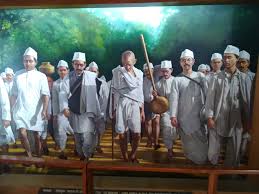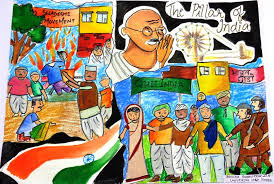The Quit India Movement, also known as the India August Movement or “Bharat Choro Andolan,” was a significant anti-colonial struggle in India. It was launched on August 8, 1942, under the leadership of Mahatma Gandhi, who famously gave the mantra of “Do or Die” during this movement¹². Let’s delve into the details of this historic event:

- Background and Context:
- The Quit India Movement emerged during World War II when India was still under British colonial rule.
- The British government’s involvement in the war had strained its resources, and the Indian National Congress saw an opportunity to demand complete independence.
- Key Events and Objectives:
- On July 14, 1942, the Working Committee of the Congress passed a resolution in Wardha, demanding the immediate end of British rule in India.
- The movement was officially launched at the Bombay meeting of the All India Congress Committee (AICC) on August 8, 1942.
- Mahatma Gandhi’s call for “Do or Die” inspired millions of Indians to join the struggle for freedom.
- The movement aimed to achieve complete independence by non-violent means.
- August 9, 1942, the day after the launch, is celebrated as August Kranti Day/Diwas in India.
- Significance and Impact:

- The Quit India Movement demonstrated the collective will and determination of diverse Indian communities to withstand both the highhandedness of imperial authorities and the elitism of the Indian political class⁴.
- Despite facing severe repression, arrests, and the declaration of the Indian National Congress as an unlawful association, the movement left an indelible mark on India’s struggle for freedom.
- The Gowalia Tank Maidan in Mumbai, where Mahatma Gandhi delivered his iconic speech, remains a historic site associated with this movement.
In summary, the Quit India Movement was a pivotal chapter in India’s fight for independence, symbolizing the unwavering spirit of the Indian people in their quest for freedom. 🇮🇳🙌¹²⁴. If you’d like more information or have any other questions, feel free to ask!